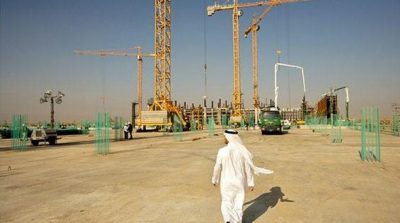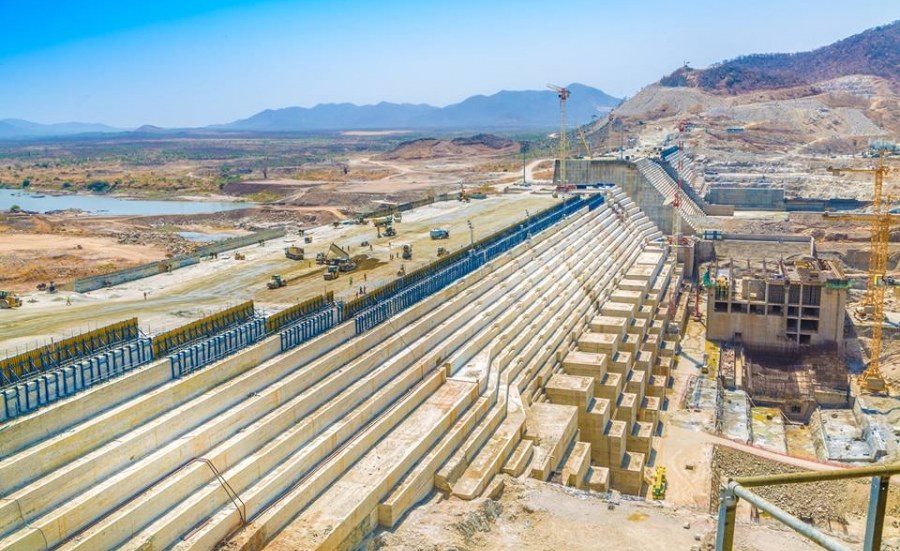Ethiopia Saudi Arabia Relations: Geopolitical and Economic Alignments, Will Ethiopia Become a Member of the GCC+

The rising African Great Power of Ethiopia might prospectively export electricity to Saudi Arabia upon the completion of its Grand Renaissance Dam and thus become the next de-facto member of the GCC+.
“Friendly Competition”
The Gulf Cooperation Council Interconnection Agency’s (GCCIA) Ahmed Ali Al-Ebrahim told Climate News that the regional integration organization will undertake a two-year feasibility assessment to examine the possibility of building an electricity cable between Saudi Arabia and Ethiopia via Yemen (and then either Djibouti or Eritrea) in order to have the landlocked giant power the Kingdom’s economy upon the completion of its Grand Ethiopian Renaissance Dam (GERD) sometime in the coming future. The proposal is enterprising enough to warrant a deeper analysis about its grand strategic implications, which would turn the rising African Great Power into a de-facto member of the GCC+, the informal expansion of the Gulf Monarchies’ platform for multilaterally engaging with the rest of the world.
Ethiopia appears to be the object of “friendly competition” between Saudi Arabia and the UAE, especially seeing as how both of their leaders are separately hosting and rewarding their Ethiopian and Eritrean counterparts following their historic peace agreement, though this dynamic actually stabilizes the country much more than it undermines it. Yemen is also the object of “friendly competition” between the GCC’s two leaders, though it’s of an entirely different nature because of the armed conflict that they’re waging there. Even so, the outcome of that war and the informal separation of spheres of influence between them will greatly determine which of the two Red Sea-bordering states the prospective electricity cable will pass through.
Yemen In The Way
Saudi Arabia is fighting to reclaim hegemonic control over the entirety of its southern neighbor’s territory, though the UAE cleverly undermined its “big brother’ by backing the South Yemeni separatists against the unpopular “official” government of President Hadi and the North Yemeni Houthi rebels. This wouldn’t ordinarily be relevant to the Horn of Africa’s transregional integrational plans had Djibouti not entered into a recent tiff with the UAE over control of its national port after evicting the Emirates from it earlier this year. This means that Abu Dhabi is extremely unlikely to greenlight an electricity cable through its de-facto “eight emirate” of South Yemen to Ethiopia via Djibouti unless the latter “makes amends” for what it did, which probably won’t happen.

Moreover, the North Yemeni Houthis have fought the GCC-led “coalition” to a standstill in their home region, thereby making it politically impossible that the de-facto rulers of this part of the war-torn country would approve of their nemesis snaking a cable through their territory to either Eritrea or Djibouti. The obvious workaround would be for Saudi Arabia to cut Yemen entirely out of the equation and simply commit to the extra costs of a longer undersea cable from its own border to Eritrea’s en route to Ethiopia, which might realistically end up being the final solution to the integrational conundrum posed by the Yemeni conflict. In the event that the cable is laid one way or another, then it would lead to two primary regional outcomes.
Egypt & The GCC+
The first is that Egypt’s concerns that GERD would ever be weaponized against its national interests would be further allayed than they already recently have been by the fact that its chief financial patrons are cooperating with the project through the planned electricity cable. This would reinforce the incipient trust between these two Great Powers and contribute to a strengthening of (GCC-facilitated) intra-African relations as a result. Relatedly, Ethiopia would join Egypt as a de-facto member of the GCC+, which would represent the organization’s deepest expansion into the Horn of Africa after the UAE set up bases in Eritrea and the breakaway Somali region of Somaliland to wage the War on Yemen.
Importantly, by becoming the center of “friendly competition” between a variety of Great Powers – whether Saudi Arabia and the UAE like in this instance, or even also China and the US more broadly – Ethiopia can position itself as too valuable for any of them to destabilize without harming their own regional interests. This is more significant of a strategy than ever before considering that Prime Minister Abiy is facing the greatest test of his premiership thus far after the “Flag War” in Addis Ababa and subsequent need to decide upon which of the two competing nationalisms (or perhaps a “hybrid” thereof) that the country will embrace as it works towards an “Ethiopian Renaissance”.
Concluding Thoughts
All told, the proposal for Ethiopia to export GERD’s electricity to Saudi Arabia is a very promising one that epitomizes “win-win” outcomes for this pair of countries and their broader regions as a whole. Saudi Arabia will able advance its ambitious Vision 2030socio-economic series of projects that aim to move the Kingdom away from its oil-related dependencies and towards more sustainable models, while Ethiopia will become a crucial pillar of the GCC’s post-oil planning (which could then expand beyond electricity to include more agricultural exports too) and thus safeguard its national security by becoming much too important of a country for them to destabilize like they’ve done to others. This will benefit both the Gulf and the Horn of Africa, thus strengthening their transregional integration prospects.
*
Note to readers: please click the share buttons above. Forward this article to your email lists. Crosspost on your blog site, internet forums. etc.
This article was originally published on Eurasia Future.
Andrew Korybko is an American Moscow-based political analyst specializing in the relationship between the US strategy in Afro-Eurasia, China’s One Belt One Road global vision of New Silk Road connectivity, and Hybrid Warfare. He is a frequent contributor to Global Research.

